Bill Shorten still long on excuses as union probe abandoned
Does Bill Shorten live in an alternative reality? The would-be prime minister cries ‘foul’, but funding rules exist for good reasons.
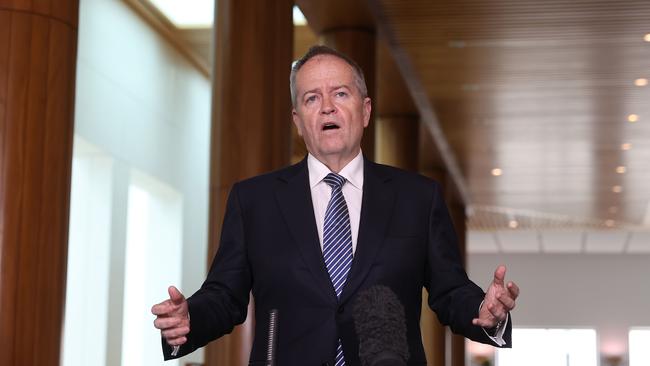
When the results of an investigation into a donations scandal involving the Australian Workers Union during Shorten’s time as its leader were released a week ago, he went on the attack.
The facts, as presented by the investigating authority, the Registered Organisations Commission, seemed precise and unembellished.
But Labor’s former federal leader dismissed the outcome, tweeting it was an “ideological smear job by a pack of gutless cowards”.
The ROC found that $263,500 of political donations made by the AWU when Shorten was national secretary – including $25,000 channelled to his own election campaign when he first ran for parliament in 2007 – were not approved by the union, as required by law.
All up, the ROC identified 20 occasions when the union breached a rule requiring the AWU national executive’s authorisation for every donation above $1000. This rule applies to all unions, under federal law.
The ROC said the AWU failed to meet its obligations nine times by lodging annual “Loans, Grants and Donations” statements between 2006 and 2013 outside required reporting times – or by not lodging them at all.
Shorten’s last year as national secretary was in 2007. In that year, the AWU failed to lodge an LGD statement and internal union records showed that about $42,000 of political donations had never been disclosed to members.
The ROC said the AWU now admitted the union could not produce any evidence of “express resolutions” by its national executive to authorise any of the 20 relevant donations under investigation. It determined that none of them was approved as required.
Then came a significant qualifying paragraph to confirm that, despite the breaches, the ROC had decided to use its discretion and would take no further regulatory action unless more information came to light: “Because of the deficient record-keeping practices of the AWU, the effluxion of time, and its inability to produce relevant documents, the investigation was unable to attribute any of the specific failures by the national executive or the AWU to any one or more individuals or office holders.” The ROC’s decision not to pursue its adverse findings has obviously disappointed some on the government side who’d hoped for more robust action. Equally, the decision might have been welcomed by Shorten as the man who was in charge of the AWU at the time.
Yet he has taken umbrage. In his response tweet, Shorten called the ROC investigation a “five-year political witch-hunt” costing taxpayers millions of dollars. He said he was proud of what he did for workers. He accused the Morrison government of trying to “lie” and using the Russian invasion of Ukraine as a cover to quietly drop everything because of an “absence of sufficient evidence”.
If Shorten’s claims are true, he is a wronged man: how could the ROC be so malicious, so blatantly partisan, inventing a fairy tale?
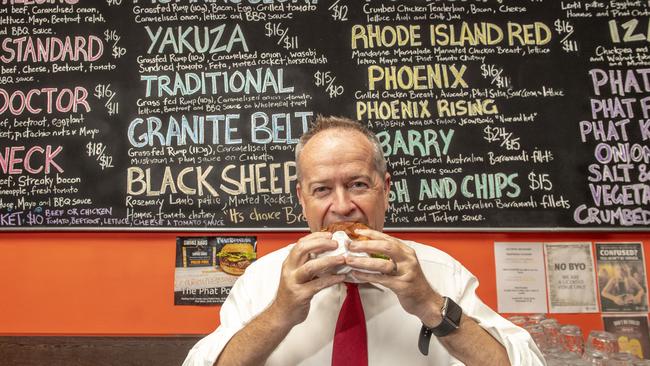
Early in this saga, one lawyer likened authorisation breaches by the AWU to a parking offence. If only. Legal rules covering union funding exist for good reasons. There have been too many documented instances of union financial abuse, theft and fraud – most recently criminal convictions and civil action against ex-Health Services Union leaders Michael Williamson, Kathy Jackson and Craig Thomson – to dismiss the need for strong accountability, transparency and enforcement.
Workers pay $600 or more annually in union dues. Many are low paid. They expect elected officials to stay focused on improving their pay and conditions.
Unions are not meant to be a club for the privileged few who lead them or stepping stones to a career in politics – even if it seems that way sometimes.
Most unions are affiliated to the ALP and fund it legitimately, but this historical association is no excuse for willy-nilly handouts of other people’s money.
The ROC’s investigation was sparked by an article published in The Weekend Australian on August 12-13, 2017, written by me. It alleged that Shorten, when he was both AWU national secretary and Victorian secretary, donated at least $100,000 of AWU members’ money as “seed funding” for the launch of the GetUp activist group in the 2006 financial year.
There was no sign this spending was authorised as required. Few knew about it.
The article, and others that followed, emanated from a reasonable request to me from The Australian’s editor-in-chief to put GetUp under the microscope and trace the funding sources for this largely opaque organisation.
That story research led to Shorten’s door. He was also one of GetUp’s inaugural board directors, which punctures the claims of some that GetUp does not have significant ties to Labor or unions, but that is another matter.
Further reports in The Australian raised questions about whether a $25,000 AWU donation made when Shorten was national secretary to his election campaign in the Victorian safe Labor seat of Maribyrnong in 2007, and others, were approved under the $1000 rule.
Much investigation work for these articles was based on studying copies of AWU national executive minutes that were available as exhibits on the website of the recent royal commission into union corruption. I couldn’t find evidence that spending was authorised as required. Some insiders who had been present at relevant meetings said it wasn’t.
Almost two years later, based on police warrant documents, I found that donations possibly not authorised by the AWU’s national executive totalled $230,000. This money went to GetUp and 13 Labor candidates, including Shorten. The ROC has since found $33,000 more in undeclared AWU political donations.
The Australian revealed on August 17, 2017, that the AWU’s national executive did pass a resolution in November 2006, moved by Shorten acolytes Mick Eagles and Cesar Melhem, which declared “the request for donations and assistance from candidates for the next federal election be left in the hands of the secretary”.
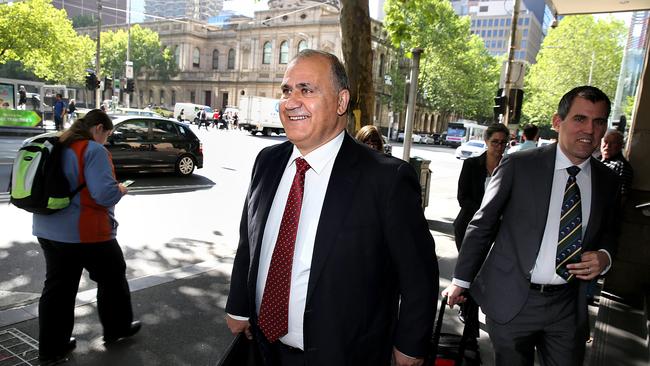
In other words, it appears Shorten was handed carte blanche to spend what he wanted despite AWU Rule 57 making it clear the full union executive needed to approve each donation exceeding $1000.
We know from experience that all governments, including Scott Morrison’s at the last election, like showering money in marginal seats that can win elections.
But it seemed reasonable to ask whether Shorten, alternative PM from 2013 to 2019, used a questionable political funding model even before he arrived in Canberra. He’d stated early on his ambitions to lead the country one day.
The three disgraced HSU leaders who got into trouble over unauthorised spending mostly used their union members’ money to fund lavish personal lifestyles. But it is worth noting that much of Thomson’s unauthorised spending went to fund his Labor election campaign in the seat of Dobell.
After The Weekend Australian’s initial reports on Shorten’s AWU donations, then employment minister Michaelia Cash referred relevant matters to the ROC for possible investigation.
The ROC’s Chris Enright had already started a preliminary investigation, on his own initiative. But Cash’s intervention prompted Labor and union claims of a political stitch-up to damage Shorten. It was even suggested, falsely, that Cash had been in cahoots with The Australian (and me) from the start.
Conspiracy theories gathered steam in October 2017 when police raided AWU offices in Melbourne and Sydney, searching for documents. The raids were based on warrants the ROC obtained from a magistrate who accepted a whistleblower’s information that someone inside the AWU was trying to destroy or tamper with documents relevant to the case.
The AWU’s current national secretary Daniel Walton seized on the opportunity gifted to him by clumsy behaviour inside Cash’s office when it was revealed that a Cash staffer had tipped off some media (not an uncommon phenomenon on either side of politics) that the raids were about to happen.
In the Federal Court, the AWU launched action claiming that the ROC investigation was invalid. Its lawyers alleged collusion involving Cash, her office, the ROC and sections of the media.
Judge Mordy Bromberg dismissed AWU claims of wrongdoing by Cash and that the leaking of the raids was proof the ROC’s investigation was politically motivated. But he found nonetheless that the investigation was invalid because of a “jurisdictional error”: suspicion was not a reasonable ground for investigating.
When Bromberg’s decision was overturned on appeal by a Federal Court full bench, the ROC gained access to documents seized in the raids and resumed its investigation.
Unions have objected to the ROC’s existence, alleging it is an overzealous ideological tool of the Coalition, since its creation by the Abbott government following royal commission findings of much corrupt union conduct and lax union governance.
Labor has promised to abolish the ROC should it be elected later this year.
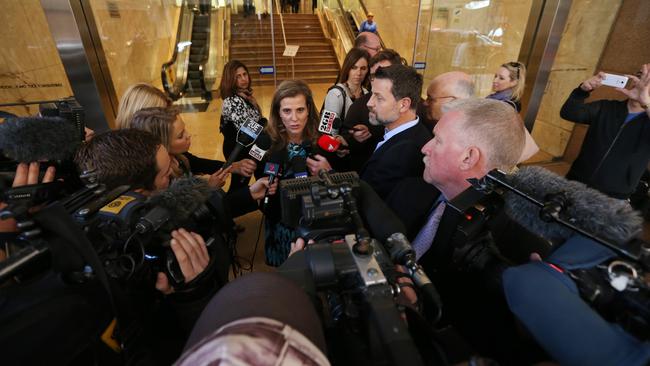
But what is the ROC? It is really the former compliance and enforcement division of the Fair Work Commission – but split off as a separate entity. Why? Because the FWC’s old internal oversight regime was shown to be ineffectual.
During the ROC’s investigation into the AWU, current national secretary Walton complained that his union’s legal costs were a million dollars or more. He also claimed the AWU would “always co-operate” with the ROC. It didn’t. Walton said he could “absolutely” guarantee that political donations in Shorten’s time were “above board and within the rules”. During an ABC interview in October 2017, and on other occasions, Walton tried to wriggle around the authorisation requirement by saying “we made declarations”.
Walton further said that once the AWU’s court action against the ROC was completed, he would release all the seized union documents regardless of which way the decision went. That undertaking was surely disingenuous: if Walton was serious, then there was no need for costly court action to block the ROC’s access to AWU documents.
In its concluding investigation statement, the ROC said: “It is the ROC’s assessment that had the AWU co-operated in August 2017 in the ways the ROC had sought, and the national secretary had agreed, it is likely the entire matter could have been resolved within about two to four weeks with a similar outcome.”
It is difficult to escape the conclusion that the AWU’s refusal to co-operate was essentially an attempt to drag out proceedings and protect Shorten in the lead-up to the 2019 federal election that Labor lost.
The AWU’s donations saga is over. The HSU’s Williamson, Jackson and Thomson were not so lucky when they spent union money without the authorisation to spend it.


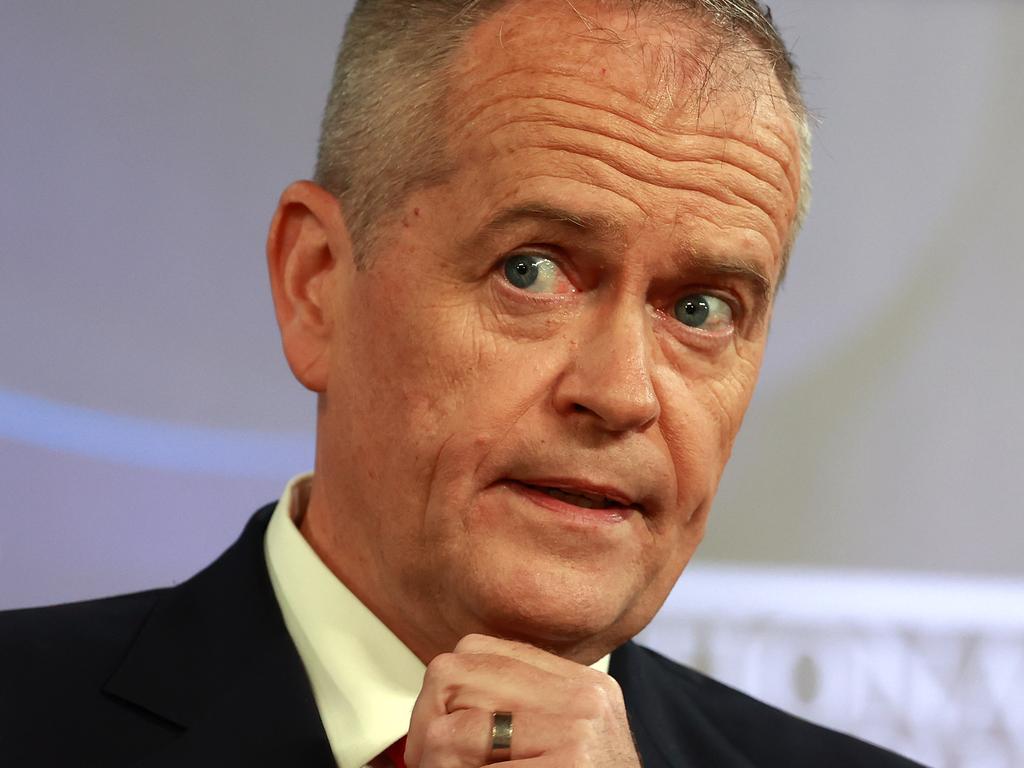
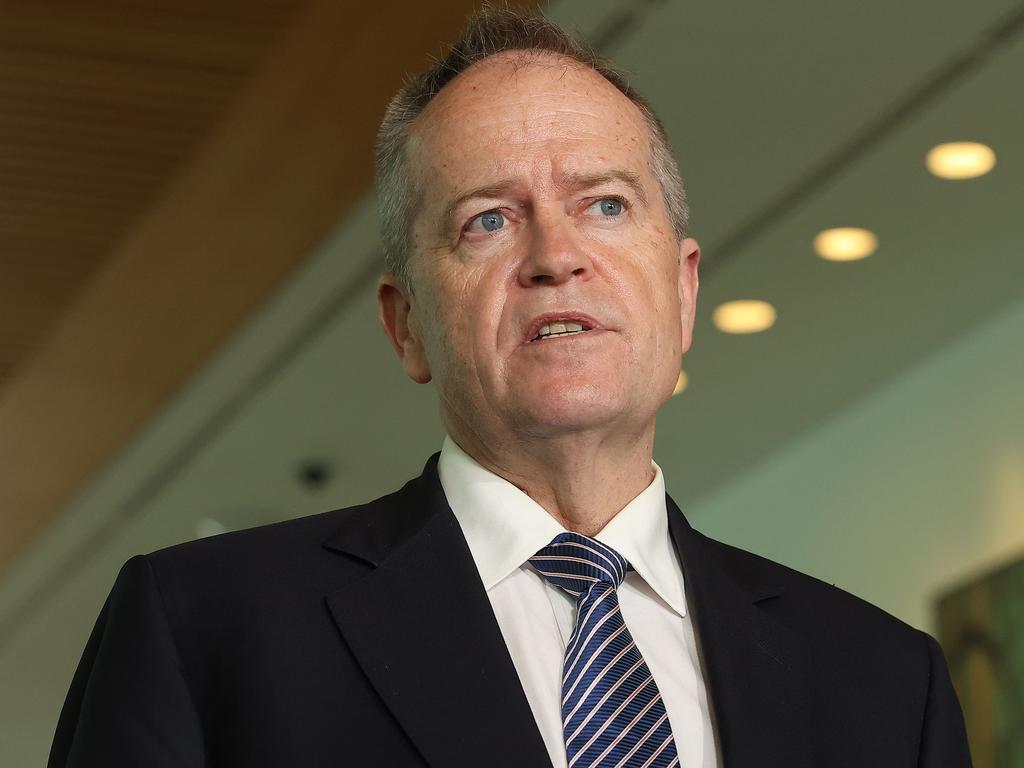



Does Bill Shorten live in an alternative reality?